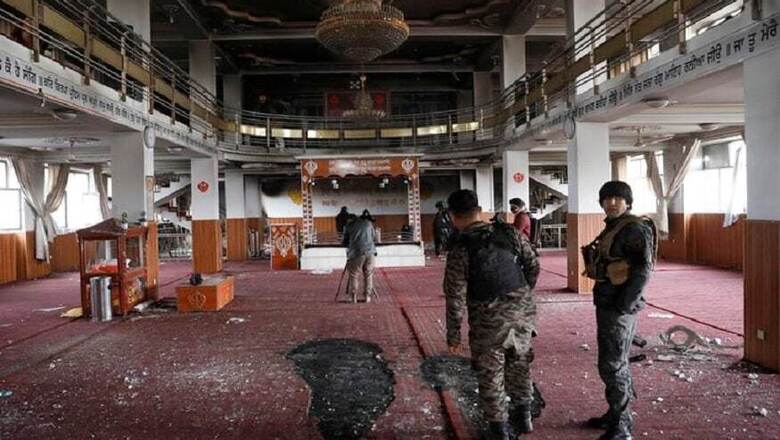
views
New Delhi: The Islamic State (IS) terrorist squad, which killed at least 25 worshippers at a Sikh gurudwara in Kabul earlier this week, included Kerala-born jihadist Abdul Khayum, also known as Abu Khalid, security sources have told Network18. The one-time resident of Chekkikulam in Kerala’s Kannur district had been sought by the National Investigation Agency (NIA) since 2017 for his alleged role in multiple terrorist plots.
In an online post, IS supporters claimed he had carried out the attack to avenge violence against Muslims in India. “Abu Khalid, may Allah accept him, has avenged the atrocities on Muslims in India,” it said.
Family members did not respond to several attempts by Network18 to seek a comment, but sources said they had been informed by the NIA of the identification.
Last year, the NIA said Khayum had used encrypted chat to organise a suicide bombing plot by Palakkad-based jihadist Riyas Aboobacker in what would have been the first attack of its kind in India. The attack, police sources said, was designed to emulate the Sri Lanka suicide bombings of 2019, led by jihadist ideologue and preacher Zahran Hashim.
According to the NIA, Riyas's arrest came after an interrogation in which he disclosed he had been following Hashim's speeches and videos for more than a year and had also followed speeches of controversial televangelist and preacher Zakir Naik.
Born in 1995, Khayyum — also known by the pseudonym Abu Khalid — was among a group of at least nine Kerala Islamists who plotted to travel to IS-governed territory in Syria in 2016-17.
The NIA says Khayyum was the only one of the group to successfully enter Syria. He is believed to have left for Syria after the fall of the so-called Caliphate in 2018 and joined a large group of Kerala jihadists in the eastern Afghanistan province of Nangarhar led by slain terror commander Shajeer Mangalassery.
Ten women, widows of slain members of the group, are currently in prison in Kabul, along with small children, awaiting a decision on whether they will be extradited to India.
Former Popular Front of India (PFI) activists Midlaj VV, a resident of Munderi in Kerala, and Chekkikulam resident Abdul Razak, are currently being prosecuted for having raised funds to enable the group to travel to Turkey.
Several attacks have been carried out in Afghanistan targeting Indian diplomatic facilities — the last a 2016 attack by the Jaish-e-Mohammed (JeM), which said it carried out the strike to avenge the hanging of terrorist Afzal Guru. But the Kabul gurudwara strike was the first ever attack on a religious minority for their faith’s link to India.
Last month, though, a new IS magazine had urged Indian Muslims to turn to jihad, charging the government with “vicious atrocities against the Muslims of the Indian subcontinent”.
“Haven’t you yet realised that the idolatrous Hindus would never ever be pleased with you until you renounce the Deen [religion] of Islam,” it asked?
“There’s good reason to believe the attack was meant to give inspiration to Islamic State cells within India to carry out similar strikes,” said a senior intelligence official.
Even though dozens of IS recruits have been arrested on charges of attempting to stage attacks across India in recent years as communal tensions have esclated, police forces and intelligence have waged a successful campaign to preempt them.
The core of the Indian nationals in the IS’s ranks was formed in 2015, when fugitive Indian Mujahideen jihadists in Pakistan became disillusioned with that country’s intelligence services and joined the new terrorist group.
In 2015, former Indian Mujahideen terrorist Sultan Armar, the 39-year-old son of a small businessman from Bhatkal in northern Karnataka, issued a call for Indian Muslims to “take the Quran in one hand and the sword in the other and head to the fields of jihad”.
His brother, Shafi Armar, would later succeed him as a guide for Indian nationals seeking jihadist training in camps in Syria and Afghanistan.
That year, Anwer Husain ‘Bhatkal’ — allegedly killed during a raid on an Afghan border outpost — became the first Indian killed in an IS military operation.



















Comments
0 comment